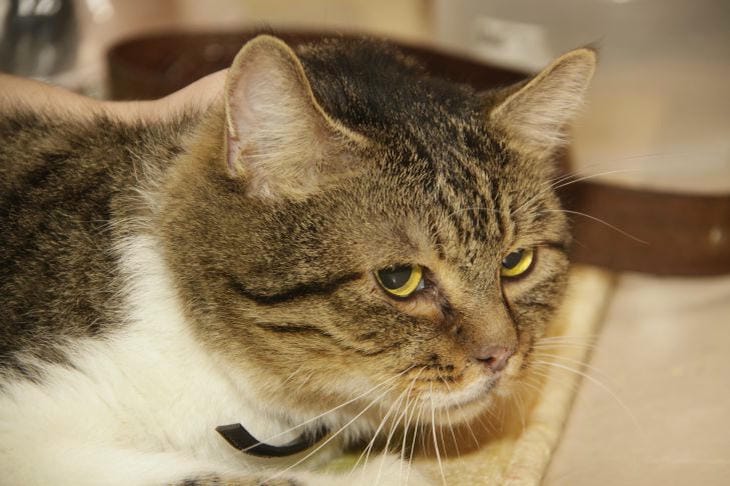Cats, mysterious and graceful creatures, have intrigued humanity with their behavior for centuries.
Their independence, cunning and ability to adapt to different situations make you wonder: just how smart are these furry companions?
Scientists and cat lovers have long been trying to unravel the mysteries of feline intelligence.
Features of the cat brain
The cat brain, although smaller than a human's, is surprisingly complex. Compared to dogs, cats have a larger number of neurons in the cerebral cortex, potentially indicating a higher level of information processing.
However, the number of neurons does not always directly correlate with intelligence, and scientists continue to study how exactly cats think.

Learning ability
Cats demonstrate an impressive ability to learn. They can remember complex sequences of actions, especially if they involve obtaining food or comfort.
Many owners successfully train their pets to do various tricks, which indicates that cats have a certain level of cognitive flexibility.
Social intelligence
Contrary to popular belief that cats are independent, research shows that they have highly developed social intelligence.
Cats are able to recognize human emotions, respond to their owner's mood, and even imitate some human actions.
This ability to interact socially indicates a high level of emotional intelligence.
Spatial thinking
Cats are renowned for their excellent sense of balance and ability to navigate in space.
Their ability to calculate the trajectory of a jump, find secluded places and return home from a long distance demonstrates developed spatial thinking. This ability is especially important for survival in the wild and adaptation to new conditions.
Memory and recognition
Research shows that cats have excellent long-term memory. They can remember people, places, and events for a long time.
The ability to recognize the owner after a long separation or to find hidden toys indicates a developed associative memory.
Problem solving
Cats exhibit amazing problem-solving abilities, especially when it comes to obtaining food or finding a comfortable place.
They can open doors, find shortcuts, and even manipulate simple machines. This ability indicates that cats have a certain level of logical thinking and creativity.
Comparison with other animals
When comparing the intelligence of cats with other animals, it is important to take into account the specifics of their evolutionary development.
Cats, as solitary hunters, have developed a unique set of cognitive abilities that differ from social animals such as dogs or dolphins. Their intelligence is more focused on individual survival and adaptation.
The influence of the environment on the development of intelligence
The environment plays an important role in the development of a cat's intelligence. Cats that live in a stimulating environment with opportunities to explore, play, and solve puzzles demonstrate higher levels of cognitive ability.
Owners can help develop their pets' intelligence by providing them with a variety of toys and tasks.








